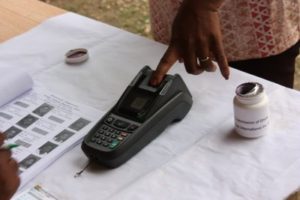 When the war of liberation was fought, the many heroes and heroines of the war who paid the ultimate price and many more men and women who were brutalized in prisons and torture camps at the hands of the Ian smith regime, hoped for a democracy that would emasculate the black race.
When the war of liberation was fought, the many heroes and heroines of the war who paid the ultimate price and many more men and women who were brutalized in prisons and torture camps at the hands of the Ian smith regime, hoped for a democracy that would emasculate the black race.
The liberation movement fought for a democratic dispensation as clearly articulated by the late ZANLA Commander Josiah Magama Tongogara “we are fighting for one man one vote.” This history is an important part in shaping current democratisation struggles as there is a continuation than a disjuncture in the national normative discourse.
The 37 years of Mugabe’s reign has eroded that spirit of the liberation struggle and ZANU PF using a complex patronage system has successfully redefined democracy from the simple universal definition of “rule by the people for the people with the people” into a rule by the elite and aban-doned the very ideals and aspirations of the liberation struggle.
Democracy in Zimbabwe has not helped in alleviating human suffering and facilitating people-centred development and giving the masses a voice but has served to create a systematic manipulation of the too poor, too weak, too desperate, too fearful and vulnerable majority that is ready to sell their soul and abdicate their rights to the too powerful black minority that captured the state post 1980.
The vulnerable youth and women in Zimbabwe have been manipulated to serve the interests of the powerful minority and have become surrogate to the too few yet too powerful ZANU PF minority.
As Robert Chambers summarizes “poverty in Africa is manufactured” and benefits the politicians as the weak and poor people are always ready to sell their rights, the same rights they fought for, the same rights that they suffered for fighting for liberty from the Smith regime, for food hand-outs and promises of jobs that never materialise.
In 2013 the people voted for a phantom 2 million jobs and l wondered how the same Mugabe who had failed to build but destroyed one of the best economies in Africa, would be able to create 2million jobs after creating massive joblessness through piecemeal and misplaced policy priorities.
Manipulating the electorate to sustain the regime:
ZANU PF has over the years successfully systematically destroyed the formal economy under the disguise of an indigenisation and black empow-erment programme thus the emergence the informal economy. Systemically this has led to urban to rural migration beefing up support for the rul-ing party in rural areas as villagers are subjected to coercive politics. The local government system in the rural areas is configured such that ZANU PF wins any election for as long as the rural population remains disempowered.
The 17 years of efforts towards democratization though Civic movements have not done much in terms of penetrating closed rural communities, with Zimbabwe still retaining the same number of political hotspots mapped in 2008.
Civic efforts have thus concentrated in urban areas and failed to impact the rural local government system where intimidation, vote buying and various forms of violence, including structural violence occur and go unnoticed.
The Biometric Voter Registration is already being used in the rural areas as a tool for rigging and intimidation.
By putting a 94 year old frail candidate who in the absence of radical reforms to the electoral process is likely to win resoundingly against an oppo-sition coalition. The issue of electoral reforms leaves ZANU PF at disadvantage hence their absence or marginal consideration.
Unless Civil Society interventions begin to be pragmatic and address the fundamental issues of rural human vulnerability and coordinate to de-mand electoral reforms first before any election, there will be no progress in the democratization endeavour and ZANU PF will continue to be a beneficiary of the poverty and vulnerability that sustains its patronage system.
Anglistone Sibanda is Chairman of Shalom Project, a Faith based Organization based in Bulawayo and is Chairperson on Peace Building Com-mittee and Board Member of Crisis in Zimbabwe Coalition as well as Secretary for Administration for Bulawayo Progressive Residents ‘Association. Views expressed here are solely personal. Anglistone can be contacted via email: apostleats@gmail.com
Post published in: Featured

